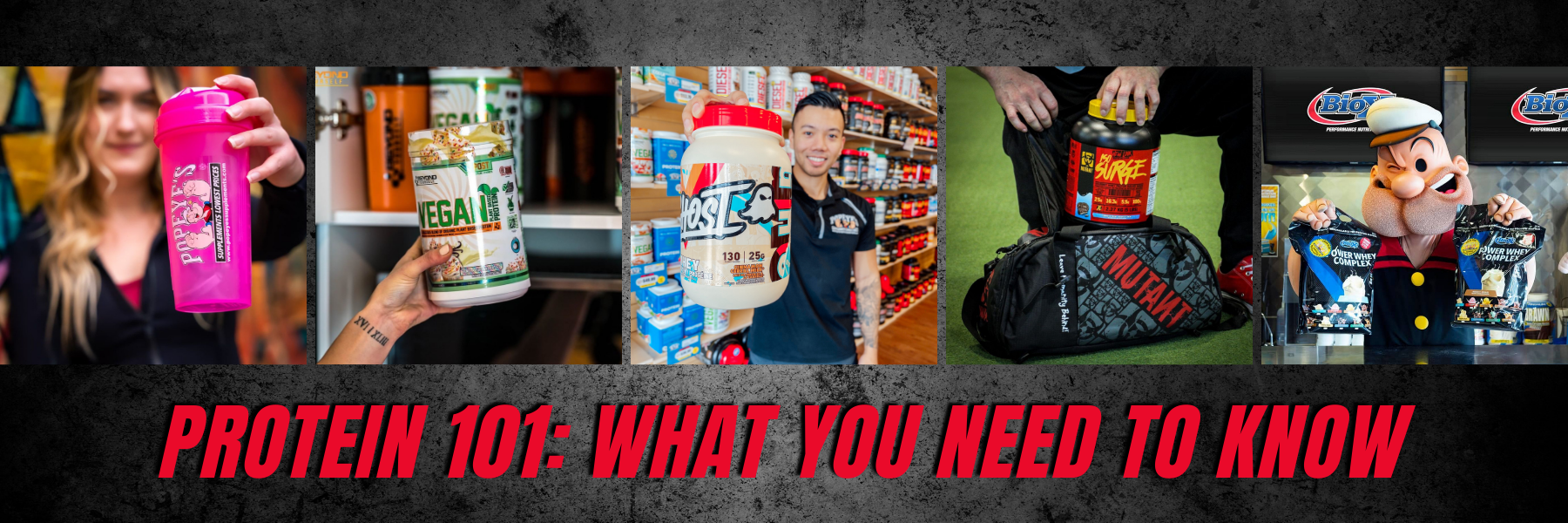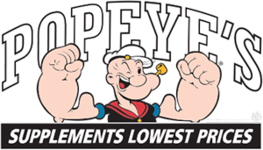
PROTEIN POWDERS 101 by Darnell Retumalta
Ah protein powders, probably the most commonly used and most researched supplement. Whether you’re trying to live a healthier lifestyle, working out for the first time, or trying to hit certain fitness goals, you’ve probably been recommended some type of protein of by either a health professional, or even by a friend or two! So what are they?
What is Protein?
Protein is an essential macronutrient that helps our body rebuild muscle and is an important part of daily nutrition. You can get protein from any number of real food sources, and you should prioritize real food in your diet. Some examples include: chicken, fish, beef, eggs, etc…
Why Supplement it?
However, there are PLENTY of instances where you might want to also supplement your food with a protein shake or protein powder (here we go):
- You struggle to consume the recommended amount of protein your body needs every day
- You are trying to bulk up and need more calories in your daily intake!
- You are trying to cut down body fat or lose weight and want to have a protein source that’s low calories and helps keep you feeling full.
- You don’t have time to prepare cooked meals and require something fast and convenient.
In these instances, protein supplements or protein shakes can be awesome!
Common types of Protein Powders
Whey protein
What it is:
If you’ve tried a protein powder before, chances are it was whey protein. Arguably the most common and popular form of protein out there, whey is actually the byproduct that comes from turning milk into cheese. It used to be discarded during the cheese-making process until people discovered it had a high protein content and could be useful.
Whey Forms:
1. Concetrates
The most popular, readily available, and cheapest protein supplementation out there. Whey contains all the essential amino acids, and is one of the byproducts of milk that has been curdled and strained.
2. Isolates
Isolates are more refined than concentrates, meaning the majority of the powder itself is the protein, which has been “isolated” from other non-protein substances. Isolates have more protein per dose than concentrates, and therefore have fewer calories and generally less total lactose, fats, cholesterol or carbohydrates. Think chicken thighs (concentrates) vs chicken breast (isolates).

3. Hydrolysate/Hydrolyze
This is simply a whey protein that has gone through the process of hydrolysis. simply is whey protein that has had the addition of water into the substance to allow for the protein to be broken down for the sole purpose to be metabolized much easier. which can be ideal for those looking to use protein powder in conjunction with intense athletic training, or those with very sensitive stomachs.
Plant Protiein
As the name suggests, plant protein powders are protein powders that come from plants. Plant protein powders are usually a blend of a few types, like pumpkin seed and pea proteins, in order to make them complete sources of protein that can fulfill the same dietary needs as whey protein.
Which to Choose?
To put it simply, the type of protein powder you should choose all depends on what YOUR goals and needs are! At the end of the day protein powders all have the same core outcome in what they do which is to recover and rebuild muscle in the body. From there it comes down to the little details, whether it be: flavor, cost or digestibility, you can stop by your local Popeye’s Supplements store and have an associate help break it all down for you!

